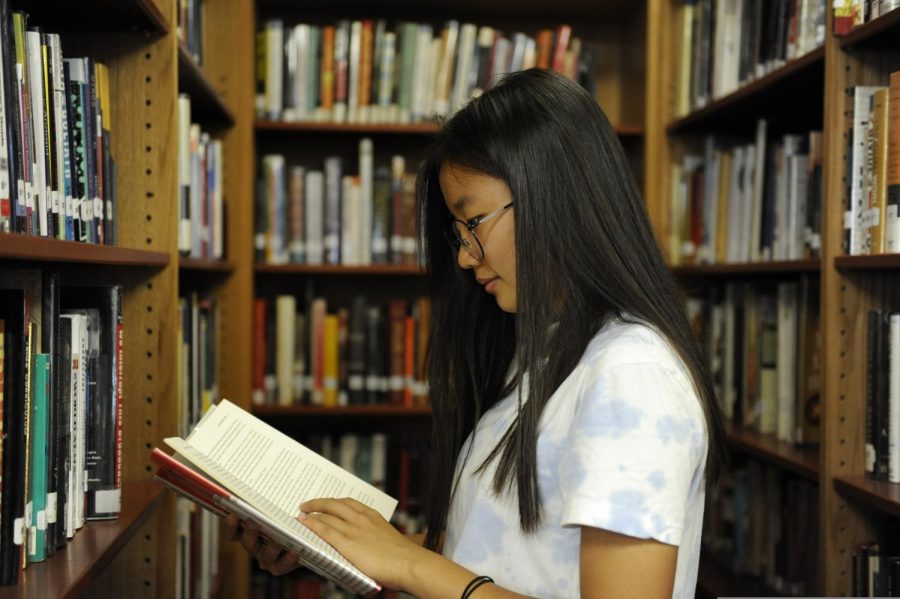Adding Color to Black and White Pages
The Bronx Science English Department diversifies their summer reading list
Alessandra Zullo Casale, Assistant Principal of the Bronx Science English department, is passionate about encouraging reading at our school. “You don’t really know that you’re a reader until you find that book that you love. We hope that this effort will encourage more students to become interested in reading,” she said.
I’ve always loved literature, but even I think of summer reading as some of the more mentally taxing assignments that Bronx Science students are given. All of the books we’ve read at school are works of art, but in the eyes of many, there’s another word that could easily describe the majority: depressing.
I distinctly remember my sister, who has since graduated, breaking down halfway through The Road, which has since been removed from the curriculum for its depressing qualities. English Department staples such as The Things They Carried, Lord of the Flies, Brave New World, and Beloved pushed me to think, but also brought me to tears. When I asked Denise Jin ’22 if she could name a happy book assigned for school, the best she could come up with was, “A Tree Grows in Brooklyn? It was sad at the beginning, but ultimately it was happy.” (For reference, Study.com describes the book as “a story that focuses on the growth of Francie Nolan… her parents and brother as they struggle to survive in the tenements of Brooklyn in the early 20th century.” Not exactly light stuff.)
But this year, the Bronx Science English Department’s summer reading options took me by surprise. The first book on the list was titled The Immortal Life of Henrietta Lacks. I had watched that movie, gripped by Oprah’s moving performance, with my mother last year. It’s about a journalist uncovering the story of Henrietta Lacks, a black woman whose cancerous cells became the first immortal cell line after she died of cervical cancer. Scanning a few titles down, The Martian popped out at me. Another movie, starring Matt Damon, about how an astronaut survived being stranded on Mars. Lord of the Rings followed soon after– one of the few books many of my peers have read in their free time, also available on the screen. And these books weren’t just available as movies. They were blockbusters.
The book titles seemed so colorful and varied that I almost found it difficult to find titles written by writers typically studied in American literature.
Rebecca, an option for incoming ninth graders, is a gothic romance novel describing a dramatic romance. Juniors read Dreams from my Father by former president Barack Obama. Amazing, Fantastic, Incredible by Stan Lee, the creator of nearly every prominent comic book hero, was also on the list. The book titles seemed so colorful and varied that I almost found it difficult to find titles written by the writers typically studied in American literature.
I talked to Ms. Zullo Casale, the new Assistant Principal of our English Department, to get a better grasp on what prompted these changes. “We want to be able to entice readers, engage readers, and to honor different backgrounds, different interests,” she told me. “We all come from such diverse backgrounds that it would be really unresponsive to limit ourselves to books from a certain time period or a certain area of the world.” Amen.
As it turns out, the English Department hasn’t limited their diversification efforts to summer reading selection. With new incoming teachers, the school has made an effort to recruit women and people of color. “We’re always looking for the best candidates to teach our students, and we of course want to also have individuals who will recognize how important it is to be culturally sensitive and to really honor different backgrounds and be more inclusive in that way,” said Ms. Zullo Casale.
To close off our discussion, I asked Ms. Zullo Casale a question that’s been bothering me since my ninth grade year: Why is it that the majority of the books we study are such downers? “Interestingly enough, I had a little experiment last year where we read something that featured a wonderfully happy ending, and students were still not satisfied. I think it’s a matter of finding a book that really speaks to you, and you’ll have to read quite a few before you get there.”
Taylor Chapman is the Editor-in-Chief of ‘The Science Survey’ and an Academics Section Reporter for ‘The Observatory.’ The learning experience...
Gazi Fuad is a Chief Photographer & Photo Editor for the school yearbook ‘The Observatory.’ Outside of school, he is part of a team of photographers....











